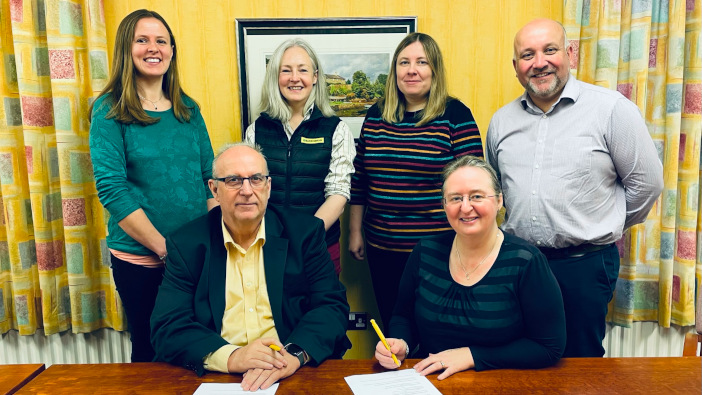Following a renewed agreement between Barenbrug UK and Northern Ireland’s Agri-Food and Biosciences Institute (AFBI), the two companies have set their sets on developing new varieties for the 2040s and beyond.
Responsible for 46 varieties on the Recommended List, the partnership has reportedly delivered a cumulative increase in grass yields of 0.5% per annum since 1991.
“The Barenbrug partnership has formed a crucial part of our successful breeding programme for a number of decades,” said Dr Gillian Young, AFBI’s grass breeder.
“Working with Barenbrug has meant that we have been able to integrate our work at the very earliest stages of breeding new grass varieties, with global advances in grass breeding through access to genetic resources and germplasms, especially from the southern hemisphere.
“The partnership has also enabled us to bring new varieties to market quickly and effectively and retain our leading position year after year on a number of Recommended Lists across the UK and Ireland.”
She added that grass breeders face a significant challenge to develop varieties that can thrive in a changing UK climate.
“We’ve seen dramatic changes over the last 20 years. There’s every chance the extreme temperatures and drought we saw in 2022 will become a more regular occurrence.
“It’s the job of the breeder to understand this and react: the varieties we develop now will be those arriving on farms in the 2040s. What happens in the lab and the glasshouse today is the silage and grazing on the farms of tomorrow.
“What traits will be valued? What traits will be essential? What are the green growth traits that farmers are going to need?”
Dr Young is working on varieties with traits including improved nitrogen utilisation and root structures. This will reduce the need for fertiliser, which can decrease costs and reduce emissions of nitrous oxide.
“Improved root structure increases the ability of soils to sequester carbon and creates a more resilient sward in dry conditions. The grass breeding programme has also improved grass digestibility, a factor which is known to reduce ruminant methane emissions. These improved grass varieties expand the toolbox for farmers trying to reduce their carbon footprint.
“Indeed, grass varieties could become part of a carbon credit system,” she predicts, “which means we’re going to need to quantify how much carbon they can capture.”
Many of these ‘new’ traits will be root traits. “Whether it’s carbon capture, nutrient efficiency, or drought resistance, the answer’s going to be in the roots – their length, diameter, mass, and so on. But we’ll have to introduce these without losing sight of the all-important above-ground traits – those to which we’re accustomed.”
Paul Johnson, managing director of Barenbrug UK, says he’s thrilled with the extension of the partnership. “Since 1991, this partnership has seen advance after advance,” he enthuses, “setting new standards for yield, digestibility, resistance, and many more, while increasing productivity and profitability.
“But our responsibilities to our farmers have shifted: it’s time to help them prepare for a changing climate. We need new varieties that not only provide exemplary fodder and grazing but which also improve farming resilience and help us in the drive towards a lower-carbon farming future.
“AFBI’s exceptional grass-breeding understanding, matched with Barenbrug’s commercial and scientific expertise, is a perfect partnership.
“We look forward to building on the success of the first thirty years.”


